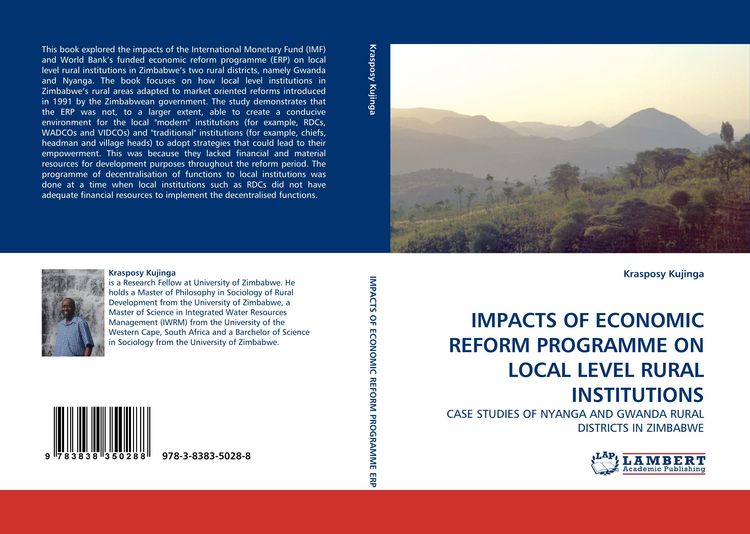
Impacts Of Economic Reform Programme On Local Level Rural Institutions CASE STUDIES OF NYANGA AND GWANDA RURAL DISTRICTS IN ZIMBABWE
-
- Englisch ausgewählt
66,99 €
UVP
79,00 €
inkl. MwSt,
Lieferung nach Hause
Beschreibung
Details
Einband
Taschenbuch
Erscheinungsdatum
09.03.2010
Verlag
LAP LAMBERT Academic PublishingSeitenzahl
220
Maße (L/B/H)
22/15/1,4 cm
Gewicht
346 g
Sprache
Englisch
ISBN
978-3-8383-5028-8
Unsere Kundinnen und Kunden meinen
Verfassen Sie die erste Bewertung zu diesem Artikel
Helfen Sie anderen Kund*innen durch Ihre Meinung
Kurze Frage zu unserer Seite
Vielen Dank für dein Feedback
Wir nutzen dein Feedback, um unsere Produktseiten zu verbessern. Bitte habe Verständnis, dass wir dir keine Rückmeldung geben können. Falls du Kontakt mit uns aufnehmen möchtest, kannst du dich aber gerne an unseren Kund*innenservice wenden.
zum Kundenservice